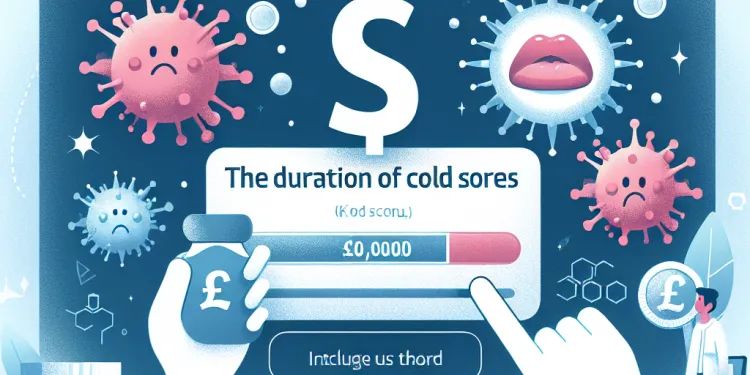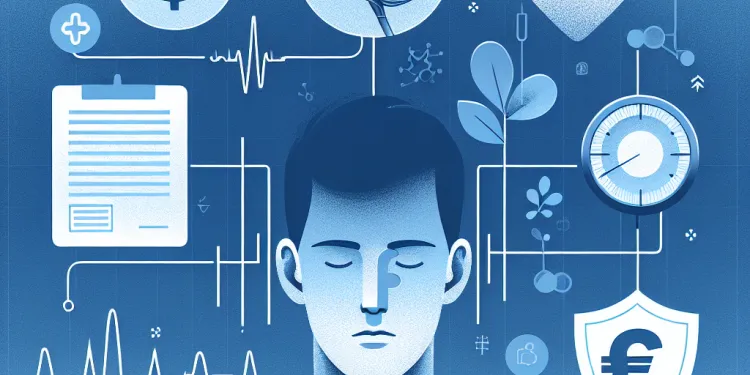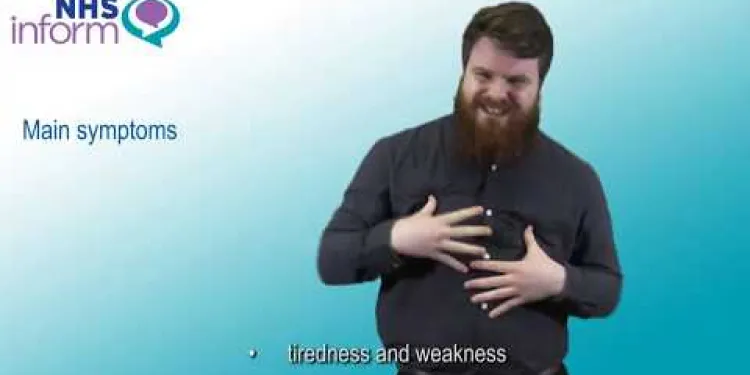
Find Help
More Items From Ergsy search
-

What are the common symptoms of a cold?
Relevance: 100%
-

How to Treat a Common Cold
Relevance: 79%
-

What are the symptoms of a cold sore?
Relevance: 79%
-

How long does a common cold typically last?
Relevance: 72%
-

Can I use a humidifier to help with my cold symptoms?
Relevance: 70%
-

What are the common symptoms of asthma?
Relevance: 63%
-

Should I see a doctor for a cold?
Relevance: 61%
-

How to treat a cold | NHS
Relevance: 61%
-

Can cold weather cause a cold?
Relevance: 61%
-

Is there a way to cure a cold quickly?
Relevance: 60%
-

Can I take antibiotics for a cold?
Relevance: 59%
-

Are cold sores contagious?
Relevance: 59%
-

What are Cold Sores?
Relevance: 58%
-

What are common symptoms of meningitis?
Relevance: 58%
-

Is there a cure for cold sores?
Relevance: 57%
-

Plantar Fascia Cold Therapy
Relevance: 56%
-

How long do cold sores last?
Relevance: 56%
-

Is it safe to exercise with a cold?
Relevance: 56%
-

Is Vitamin C effective against colds?
Relevance: 55%
-

How can I treat a cold at home?
Relevance: 55%
-

How are cold sores transmitted?
Relevance: 54%
-

What are the common symptoms of hay fever?
Relevance: 54%
-

How do I treat my child's cold? (9 - 30 months) | NHS
Relevance: 53%
-

What causes cold sores?
Relevance: 51%
-

Can orange juice help prevent colds?
Relevance: 51%
-

What are common symptoms of menopause?
Relevance: 51%
-

What are the common symptoms of appendicitis?
Relevance: 51%
-

What are common symptoms of a concussion?
Relevance: 51%
-

What should you do if you have a cough or cold?
Relevance: 50%
-

Can children take the same cold medications as adults?
Relevance: 50%
-

What triggers a cold sore outbreak?
Relevance: 49%
-

What are common symptoms of nettle rash?
Relevance: 48%
-

How can I prevent cold sores?
Relevance: 48%
-

Symptoms of flu (influenza)
Relevance: 48%
-

Dealing with Common Childhood Illnesses
Relevance: 48%
-

What are the common symptoms of Crohn's disease?
Relevance: 48%
-

What are the common symptoms of lupus in children?
Relevance: 48%
-

What are common symptoms if my drink has been spiked?
Relevance: 47%
-

What are common symptoms of Lyme disease?
Relevance: 47%
-

What are common symptoms of health-related anxiety?
Relevance: 47%
Understanding the Common Cold
The common cold is an upper respiratory tract infection that is extremely prevalent, particularly during the colder months. Let’s explore its symptoms to help identify and manage this ailment effectively.
Initial Symptoms
The onset of a cold typically begins with a sore throat or scratchy feeling, which often leads to sneezing and a runny nose. These initial symptoms can be quite mild, including general discomfort in the throat and slight sinus pressure.
Progressive Symptoms
As the cold progresses, symptoms like nasal congestion and a persistent cough are likely to develop. The congestion is often due to inflammation and increased production of mucus in the nasal passages. A dry or productive cough can occur as the body attempts to clear out extra mucus and irritants from the throat and lungs.
General Malaise and Fatigue
Individuals with a cold often experience general feelings of malaise and tiredness. It’s not uncommon to feel more tired than usual, with a sense of lethargy. This general fatigue can affect daily functioning and productivity.
Fever and Body Aches
While high fevers are not usual in colds, a slight fever and accompanying body aches can occur. Body aches may result in mild discomfort , making normal activities a bit more strenuous. Children are more likely to experience a slight fever than adults.
Duration and Severity
Cold symptoms typically last about 7 to 10 days. Symptoms are often mild to moderate and self-limiting, which means they can resolve without medical treatment. However, if symptoms persist beyond this period or worsen, it may be wise to consult a healthcare professional for potential complications such as sinus infections or bronchitis.
Conclusion
Recognizing these common symptoms can help manage the cold with rest, hydration, and over-the-counter medications when needed. If symptoms are severe or prolonged, seeking medical advice is advisable to rule out more serious infections.
Understanding the Common Cold
The common cold is a sickness that affects your nose and throat. Many people catch it, especially when it's cold outside. Let's learn about the signs of a cold and how to feel better.
Initial Symptoms
When a cold starts, your throat might hurt or feel itchy. You might start sneezing and have a runny nose. These signs are usually gentle, like a tickle in your throat and a little pressure in your nose.
Progressive Symptoms
As the cold continues, your nose might feel stuffed up, and you could start coughing. This happens because your body makes more mucus, which is the stuff that comes out of your nose. Coughing helps your body get rid of the extra mucus.
General Malaise and Fatigue
When you have a cold, you might feel tired and not very energetic. It's normal to be more tired than usual, which can make it hard to do your daily activities.
Fever and Body Aches
You might have a low fever and your body might ache a little. This can make doing things feel a bit harder. Kids are more likely to have a slight fever than grown-ups.
Duration and Severity
A cold usually lasts about 7 to 10 days. Most of the time, the symptoms are not too bad and go away on their own. But if you still feel bad after 10 days or your symptoms get worse, it's a good idea to see a doctor. It could be something more serious like a sinus infection.
Conclusion
Knowing these signs can help you take care of yourself by resting, drinking lots of water, and taking medicine if you need it. If your symptoms are really bad or last a long time, it's best to talk to a doctor to make sure it's just a cold.
Frequently Asked Questions
What are the most common symptoms of a cold?
Common symptoms of a cold include a runny or blocked nose, sneezing, a sore throat, coughing, and a general feeling of being unwell.
How does a cold differ from the flu?
A cold is generally milder than the flu. Both are respiratory illnesses, but the flu typically includes symptoms like a high fever, body aches, and extreme fatigue.
Can a sore throat be a symptom of a cold?
Yes, a sore throat is often one of the first symptoms of a cold.
Are headaches common with a cold?
Headaches can occur with a cold, but they are more commonly associated with the flu.
Is a fever a typical symptom of a cold?
A mild fever can occur with a cold, but higher fevers are more typical of the flu.
How long do cold symptoms usually last?
Cold symptoms typically last about 7 to 10 days.
When should I see a doctor for a cold?
You should see a doctor if your symptoms are severe, persist beyond 10 days, or if you have other health concerns.
Can colds cause ear pain?
Yes, colds can lead to ear congestion and sometimes cause pain due to the build-up of pressure.
Is losing the sense of smell a symptom of a cold?
Yes, a blocked nose can temporarily affect your sense of smell.
Are chills a symptom of a cold?
Chills are more commonly associated with the flu, but you may experience mild chills with a cold if a fever is present.
Can a cold cause fatigue?
Yes, feeling tired or fatigued is a common symptom of a cold.
Are muscle aches associated with colds?
Muscle aches are more common with the flu, but some people may experience mild discomfort with a cold.
Do colds usually start with a cough?
Colds often begin with a sore throat or runny nose, and a cough may develop later.
Can a cold cause a loss of appetite?
Yes, it's common to experience a decreased appetite when you have a cold.
Is it normal to have watery eyes when you have a cold?
Yes, watery eyes can occur with colds due to nasal congestion and irritation.
What are the signs of a cold?
A cold can make you feel unwell. Here are some signs to look out for:
- You might have a runny or stuffy nose.
- Your throat might hurt.
- You could be sneezing a lot.
- You might feel tired.
If you have these signs, you could have a cold. Remember to rest and drink lots of water. If you're not sure, ask a grown-up or someone who can help you.
When you have a cold, you might have:
- A runny or stuffy nose
- Sneezing
- A sore throat
- Coughing
- Feel tired and not well
If reading is hard, try using pictures or listening to someone read the text. You can also use tools that read text out loud.
What is the difference between a cold and the flu?
A cold and the flu are both illnesses, but they are not the same.
Here is how they are different:
- Cold: You might have a runny nose, sore throat, and sneezing. A cold is usually milder.
- Flu: You might have a fever, body aches, and feel very tired. The flu can make you feel much worse.
Helpful tips:
- Use a calendar to track when you start feeling sick.
- Ask someone to explain things if you don't understand.
- Use drawings or pictures to help you understand the symptoms.
A cold is not as strong as the flu. They both affect your breathing. But with the flu, you often have a high fever, sore muscles, and feel very tired.
Can a sore throat mean you have a cold?
Yes, a sore throat can be a sign that you might have a cold.
If your throat hurts and you feel sick, it could be a cold.
You can use soft drinks and warm soup to help your throat feel better.
If you are worried, you can tell an adult or see a doctor.
Yes, having a sore throat is often one of the first signs that you have a cold.
Do you get headaches when you have a cold?
When you have a cold, it is normal to get a headache. It can make your head hurt or feel sore.
Tip: If you get a headache, try to rest and drink lots of water. You can also ask a grown-up for medicine to help with the pain.
You can get a headache when you have a cold. But headaches happen more often when you have the flu.
Do you get a fever when you have a cold?
You can get a little warm with a cold. But if you have a high fever, it might be the flu.
How long do you feel sick with a cold?
When you have a cold, you might feel sick for about 7 to 10 days.
When should I see a doctor for a cold?
If you have a cold, you usually do not need to see a doctor. But sometimes, it is a good idea to get help. Here are some times to see a doctor:
- Fever: If you have a high temperature that does not go away.
- Breathing: If you find it hard to breathe.
- Cough: If you have a cough that lasts more than a week.
- Pain: If you have bad pain in your ears or other places.
- Feeling worse: If you start feeling much worse instead of better.
You can ask someone to help you read this or use pictures to help understand. It's okay to ask a nurse or a doctor if you have questions.
Go see a doctor if you feel very bad, if you don't get better in 10 days, or if you are worried about your health.
Do colds make your ears hurt?
When you have a cold, you might feel pain in your ears. A cold can cause your ears to hurt because the cold can block the tubes that let air in and out of your ears. This might make your ears feel full or painful.
If your ears hurt a lot or the pain doesn’t go away, it is a good idea to ask an adult or a doctor for help.
Using tools like pictures or talking about how you feel might help you understand better.
Yes, colds can make your ears feel blocked and sometimes hurt because of pressure building up.
Can you lose your sense of smell when you have a cold?
When you catch a cold, you might notice you can't smell things properly. This can happen because your nose is blocked. It's a common thing when you have a cold.
If you have trouble reading, try using a ruler or your finger to follow the words. You can also ask someone to read it out loud for you.
Yes, having a stuffy nose can make it hard to smell things for a little while.
Do you feel shivers when you have a cold?
Sometimes, when we catch a cold, we might feel cold and get shivers. Feeling shivers can be a sign that you have a cold.
If you feel shivers and think you might have a cold, it's good to rest and drink lots of water.
You can also use a blanket to stay warm or ask an adult for some medicine to feel better.
When you have the flu, you might feel chills. This means you feel cold. Sometimes, if you have a cold and a fever, you might have chills too.
Can having a cold make you feel tired?
Yes, when you have a cold, it can make you feel very tired. This is because your body is working hard to fight the cold.
What can help:
- Rest: Try to get plenty of sleep.
- Drink water: Stay hydrated by drinking lots of water.
- Healthy food: Eat good food to give your body energy.
Yes, feeling very tired is normal when you have a cold.
Do you get sore muscles when you have a cold?
When you have the flu, your muscles can hurt a lot. But if you just have a cold, you might feel a little bit of pain.
Do you get a cough first when you have a cold?
When you catch a cold, you might wonder what happens first. Sometimes, people start with a cough, or they might have a sore throat. It can be different for everyone.
If reading is hard, it can help to have someone read to you. You can also use apps that can read the words out loud.
When you have a cold, you might first get a sore throat or a runny nose. Later, you could start to cough.
Can a cold make you not feel hungry?
Yes, it's normal to not feel hungry when you have a cold.
Can your eyes get watery when you have a cold?
Yes, it is normal for your eyes to be watery when you have a cold. Here are some tips to help:
- Use a soft tissue to gently wipe your eyes.
- Try not to rub your eyes too much.
- Ask an adult for soft wipes to clean your face.
Yes, when you have a cold, your eyes can be watery. This happens because your nose is stuffed up and bothered.
Useful Links
This website offers general information and is not a substitute for professional advice.
Always seek guidance from qualified professionals.
If you have any medical concerns or need urgent help, contact a healthcare professional or emergency services immediately.
Some of this content was generated with AI assistance. We’ve done our best to keep it accurate, helpful, and human-friendly.
- Ergsy carfully checks the information in the videos we provide here.
- Videos shown by Youtube after a video has completed, have NOT been reviewed by ERGSY.
- To view, click the arrow in centre of video.
- Most of the videos you find here will have subtitles and/or closed captions available.
- You may need to turn these on, and choose your preferred language.
- Go to the video you'd like to watch.
- If closed captions (CC) are available, settings will be visible on the bottom right of the video player.
- To turn on Captions, click settings .
- To turn off Captions, click settings again.
More Items From Ergsy search
-

What are the common symptoms of a cold?
Relevance: 100%
-

How to Treat a Common Cold
Relevance: 79%
-

What are the symptoms of a cold sore?
Relevance: 79%
-

How long does a common cold typically last?
Relevance: 72%
-

Can I use a humidifier to help with my cold symptoms?
Relevance: 70%
-

What are the common symptoms of asthma?
Relevance: 63%
-

Should I see a doctor for a cold?
Relevance: 61%
-

How to treat a cold | NHS
Relevance: 61%
-

Can cold weather cause a cold?
Relevance: 61%
-

Is there a way to cure a cold quickly?
Relevance: 60%
-

Can I take antibiotics for a cold?
Relevance: 59%
-

Are cold sores contagious?
Relevance: 59%
-

What are Cold Sores?
Relevance: 58%
-

What are common symptoms of meningitis?
Relevance: 58%
-

Is there a cure for cold sores?
Relevance: 57%
-

Plantar Fascia Cold Therapy
Relevance: 56%
-

How long do cold sores last?
Relevance: 56%
-

Is it safe to exercise with a cold?
Relevance: 56%
-

Is Vitamin C effective against colds?
Relevance: 55%
-

How can I treat a cold at home?
Relevance: 55%
-

How are cold sores transmitted?
Relevance: 54%
-

What are the common symptoms of hay fever?
Relevance: 54%
-

How do I treat my child's cold? (9 - 30 months) | NHS
Relevance: 53%
-

What causes cold sores?
Relevance: 51%
-

Can orange juice help prevent colds?
Relevance: 51%
-

What are common symptoms of menopause?
Relevance: 51%
-

What are the common symptoms of appendicitis?
Relevance: 51%
-

What are common symptoms of a concussion?
Relevance: 51%
-

What should you do if you have a cough or cold?
Relevance: 50%
-

Can children take the same cold medications as adults?
Relevance: 50%
-

What triggers a cold sore outbreak?
Relevance: 49%
-

What are common symptoms of nettle rash?
Relevance: 48%
-

How can I prevent cold sores?
Relevance: 48%
-

Symptoms of flu (influenza)
Relevance: 48%
-

Dealing with Common Childhood Illnesses
Relevance: 48%
-

What are the common symptoms of Crohn's disease?
Relevance: 48%
-

What are the common symptoms of lupus in children?
Relevance: 48%
-

What are common symptoms if my drink has been spiked?
Relevance: 47%
-

What are common symptoms of Lyme disease?
Relevance: 47%
-

What are common symptoms of health-related anxiety?
Relevance: 47%


